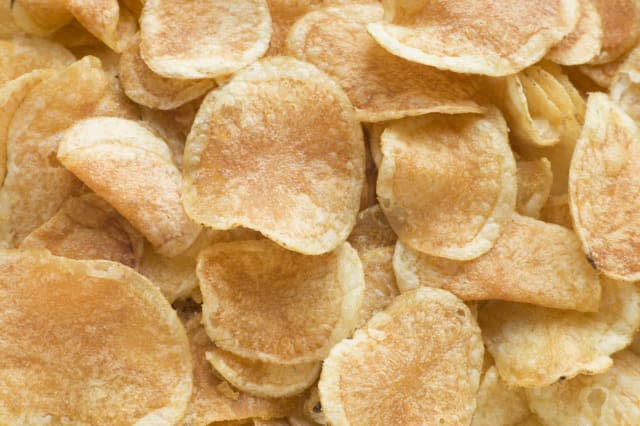Eating these foods can actually make you feel HUNGRIER

When you're watching your weight it helps to count calories - but not all calories are made equal. Instead of filling you up, certain foods can actually make you feel hungrier. Experts say that eating just a few bites of these foods can "activate" the parts of your brain and gut that drive your hunger for more.
See also: Five foods that cause your belly to bloat
See also: Lose weight by making your hormones work for you
1. Crisps
What do you reach for when you get peckish? Eat a packet of crisps and it's likely to send your appetite soaring. When you eat processed carbohydrates, like white bread, crisps or crackers, it causes your blood-sugar levels to rise. This is turn, triggers the body to release a large amount of insulin to normalise blood sugar and store this energy away as fat in your body. Once that happens, your hunger kicks in again - making you want to eat more.
2. Biscuits, cakes and sweets
Sugar activates your brain's reward and appetite pathways differently to other kinds of food, according to a study from Yale University School of Medicine. Researchers say that the thalamus, hypothalamus, and insula - all regions of the brain that urge you to eat - tend to be inactive once you've eaten. But when you consume sugar, whether in the form or sweets or organic honey, those areas stay active. Instead of your brain telling your body that you're satisfied, it makes you crave more.
3. Low-fat, single serve yoghurt
Cup-sized portions of yoghurt tend to be packed with sugar and processed carbs. They also require little chewing, which is bad news for your appetite. Studies show that chewing helps to reduce the body's levels of the hunger hormone, ghrelin. For this reason, it's best to avoid eating liquid-based items which contain very little fibre or protein - even "healthy" juices can cause your appetite to soar.
4. Diet drinks and artificially sweetened snacks
When artificial sweeteners hit your tongue, your brain's reward centres light up and signal to your stomach to expect some calories. When these calories don't arrive, your brain notices the shortfall and sends a signal to your stomach to eat – making you crave food.



